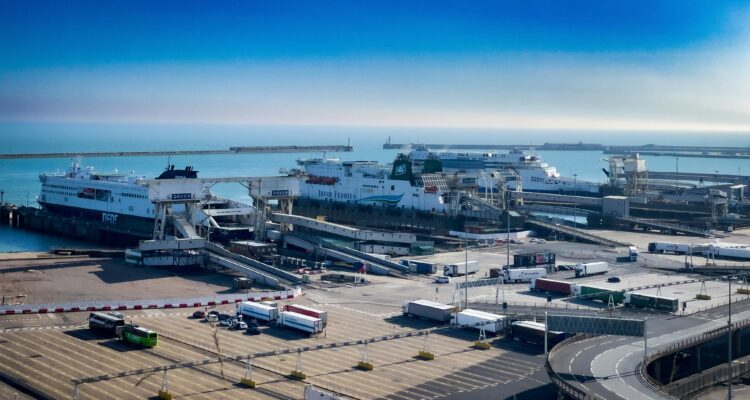The National Audit Office (NAO) released a report last Monday (20th May 2024) with the results of its investigations into the Government’s approach to border controls post-Brexit.
£4.7bn is the amount that the government forecasts it will spend on the 13 most significant programmes to manage the passage of goods across the border in the context of the United Kingdom’s (UK’s) exit from the European Union (EU) and improve performance of the border over the lifetime of the programmes.
But it is the cost to traders that is most concerning:
- £7.5 billion HM Revenue & Customs’ 2019 estimate of the total annual cost to UK businesses of completing customs declarations on trade between the UK and the EU, which it is yet to update.
- 316,000 the number of Export Health Certifi cates issued by the Animal and Plant Health Agency on goods exported from GB to the EU during 2023 (not including goods moved from GB to Northern Ireland.)
- £54 million the Department for Environment, Food & Rural Affairs’ estimate of the annual cost to traders of the sanitary and phytosanitary (SPS) controls it introduced for EU imports between January 2021 and December 2023
These controls have been delayed 5 times since the end of the transition period on the 31st December 2020, and it is only now that these are to be implemented. Even so, the introduction of the controls will be phased in over time with the first; checks on sanitary and phytosanitary (SPS) goods, in force since 30th April 2024.
Even that set of checks have been patchy with vehicles being waved through at peak busy times.
Repeated delays in introducing import controls and difficulties forecasting requirements have resulted in government expenditure on infrastructure and staff that were not needed. NAO said Port Health Authorities (PHAs) recruited about 520 staff to undertake SPS checks, 370 of which were not required. Some of these staff were redeployed into other vacant positions.
NAO found that the loss of access to EU surveillance and alert systems reduces the UK’s awareness of impending dangers, and the phased approach to introducing full controls has increased biosecurity risk. Ongoing uncertainties and differences in port readiness mean that SPS controls may operate on an inconsistent and incomplete basis after being introduced.
The National Farmers Union and British Poultry Council told NAO that they were concerned about the biosecurity risk from a lack of import controls on animal products.
The Animal and Plant Health Agency (APHA) has been undertaking checks on high-risk plant products from the EU at points of destination rather than at the border.
In 2023, APHA issued 316,000 Export Health Certificates (EHCs) and 21,000 phytosanitary certificates concerning the movement of SPS goods from the UK to the EU.
The Department for Environment, Food and Rural Affairs (Defra) estimated that the annual cost to traders of complying with the SPS import controls it introduced for EU imports between January 2021 and December 2023 was around £54 million.
Commenting on the report, RHA Public Affairs Manager, Ashton Cull said: “We are deeply concerned to read this report detailing the level of delays in the introduction of the new border model, and particularly the Single Trader Window.
“The overspend on infrastructure and staffing is also of concern to us, particularly when we are receiving reports from members that significant delays are being caused by a lack of resource at Sevington [Inland Border Facility].
“What the road haulage industry needs above all else is clarity and certainty on timelines and costs, and we hope this report can encourage more openness on these points from Government.
“We will continue to work with Government on the development of the new border strategy and we will ensure that the views of industry and the key users making crossings are at the heart of the developing strategy.”
Read the full report, here.






